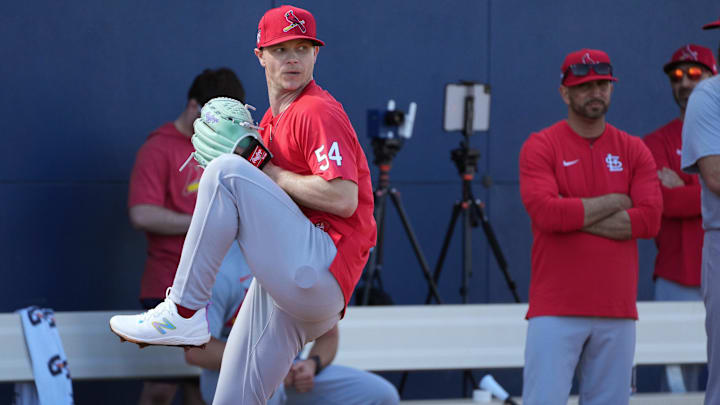Baseball Savant has a statistic called "run value". Essentially, this figure measures how good a pitch was for a particular pitcher. It is one of the most comprehensive statistics when looking at the effectiveness of a pitch.
Baseball Savant defines run value as "the run impact of an event based on the runners on base, outs, ball, and strike count". Run value is defined on a per-pitch basis as opposed to a per-plate appearance basis. In theory, pitchers should lean on their best pitches and avoid their weakest pitches. This is a fine line to walk, however, because the more often a hitter sees a pitch, the more comfortable he gets against it.
For context, Adam Wainwright had the absolute worst pitch in baseball last year among qualified pitchers. His sinker had a -23 run value by the end of the season, and he used it 31.4% of the time. Gerrit Cole's 4-seam fastball was the best pitch in baseball according to run value, and he used it 53% of the time.
The St. Louis Cardinals have acquired a plethora of pitchers this offseason. Sonny Gray, Lance Lynn, Kyle Gibson, Andrew Kittredge, and Keynan Middleton are all guaranteed roster spots. Incumbent pitchers such as Miles Mikolas, Steven Matz, Ryan Helsley, Giovanny Gallegos, and JoJo Romero will be returning to the pitching corps in 2024.
There are some pitchers who are on the fringe of making the roster. Matthew Liberatore, Zack Thompson, Nick Robertson, Andre Pallante, Drew Rom, John King, Riley O'Brien, and Ryan Fernandez are all possible bullpen arms. Of these 8 relievers, Andre Pallante's 4-seam fastball graded out as the best with a run value of 18. Conversely, Andre Pallante's slider was the worst pitch out of this collective with a run value of -8. This could be why he's added a death ball this offseason.
Ryan Helsley's best pitch was his slider with a run value of 9. Matthew Liberatore threw only 1 pitch out of 4 with a positive run value, his sinker, and Zack Thompson's curveball was one of the best on the team with a run value of 6.
